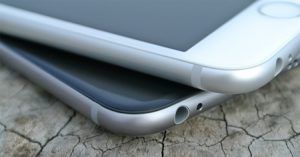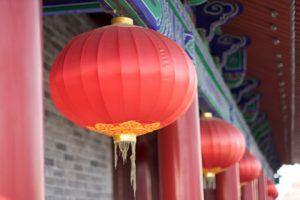Chip manufacturer Qualcomm has sued the smartphone manufacturer Apple in a Chinese court, in order to induce an import ban on some versions of the iPhone models in China. This is the latest highlight in the global dispute concerning patents and royalties on Qualcomm’s products built into Apple’s iPhones.
Proposal to ban the production and sale of iPhones
 Qualcomm filed its claims against Apple at the Beijing Intellectual Property Court a few weeks ago. The court hasn’t released them yet. In principle, the chip manufacturer would like to have the court ban the production and sale of Apple’s products in China. It remains to be seen whether the application is granted, there is no comparable precedent. And it is a verdict with far-reaching consequences for the American smartphone manufacturer, but also for the Chinese labor market, as hundreds of thousands of people in China work in the production and sale of Apple’s iPads and iPhones. The recent round of lawsuits in the Chinese court is the latest culmination of a global dispute over license fees for Qualcomm’s patents. It is helpful to understand the licensing model of the two U.S. companies.
Qualcomm filed its claims against Apple at the Beijing Intellectual Property Court a few weeks ago. The court hasn’t released them yet. In principle, the chip manufacturer would like to have the court ban the production and sale of Apple’s products in China. It remains to be seen whether the application is granted, there is no comparable precedent. And it is a verdict with far-reaching consequences for the American smartphone manufacturer, but also for the Chinese labor market, as hundreds of thousands of people in China work in the production and sale of Apple’s iPads and iPhones. The recent round of lawsuits in the Chinese court is the latest culmination of a global dispute over license fees for Qualcomm’s patents. It is helpful to understand the licensing model of the two U.S. companies.
Apple does not pay any direct royalties to Qualcomm for the patents held by the specialist for semiconductor and mobile technologies in this case. Instead, Apple’s contract manufacturers Foxconn, Pegatron, Wistron and Compal are paying license fees to Qualcomm for the use of their patents in the manufacture of iPads and iPhones for mobile phones.
Qualcomm and Apple – long relationship, bitter conflict
 The dispute between Qualcomm and Apple has been escalating for some time. Apple split the orders for modems between Qualcomm and its competitor Intel from iPhone 7 onwards and supported a South Korean antitrust investigation of Qualcomm’s royalties in 2016. In response to this, the chip manufacturer actually stopped making binding payments to Apple, which were still part of the exclusive partnership with Apple from 2011 to 2016. The two companies are suing each other and meanwhile worldwide. Apple accuses the chip manufacturer of using an illegal business model because Qualcomm is trying to get payed royalties for both the supply and installation of the chips and their use. We reported on this important licensing decision, which Apple won in September.
The dispute between Qualcomm and Apple has been escalating for some time. Apple split the orders for modems between Qualcomm and its competitor Intel from iPhone 7 onwards and supported a South Korean antitrust investigation of Qualcomm’s royalties in 2016. In response to this, the chip manufacturer actually stopped making binding payments to Apple, which were still part of the exclusive partnership with Apple from 2011 to 2016. The two companies are suing each other and meanwhile worldwide. Apple accuses the chip manufacturer of using an illegal business model because Qualcomm is trying to get payed royalties for both the supply and installation of the chips and their use. We reported on this important licensing decision, which Apple won in September.
Apple has also initiated several antitrust proceedings against Qualcomm in the United States, as well as in the United Kingdom, Japan, China, and Taiwan for allegedly unfair pricing of its technology. The Taiwanese Fair Trade Commission fined Qualcomm NT$23.4 billion ($773 million) in fines only a few days ago. Qualcomm had violated antitrust laws for at least seven years, and during that time it wrongfully collected NT$400 billion of royalties from local companies.
Qualcomm is currently the only provider on the market to support Gigabit-speed data transfer. The X16 modems are also installed in the new Samsung Galaxy S 8, for example. This performance capability of the modems has meanwhile been the subject of indictments. The chip manufacturer accuses Apple of deliberately limiting the performance of its chipsets. Because both fast Qualcomm and slower Intel modems are built into iPhone 7.
Recent intensification: Application for import ban on iPhones
 Qualcomm has now decided to take legal action to ban the import of some versions of the iPhone. Firstly, a ban on imports into the United States, as we have reported. The allegation is that Apple has infringed six of Qualcomm’s patents. The decision is expected in a few weeks or potentially within days.
Qualcomm has now decided to take legal action to ban the import of some versions of the iPhone. Firstly, a ban on imports into the United States, as we have reported. The allegation is that Apple has infringed six of Qualcomm’s patents. The decision is expected in a few weeks or potentially within days.
The decision on the ban on the import of iPhones in China is also open. The Beijing Intellectual Property Court is one of three specialised courts in the Chinese judiciary that exclusively rule on patent and licensing cases. The Beijing IP Court deals with patent, trademark, copyright and unfair competition litigation. It has the power to issue restraining orders and to grant damages. Its judgments may be appealed in accordance with the rule of law. Since its establishment in 2014, the court has earned a reputation for fair and equitable judgment. Among other things, Microsoft won against China’s Trademark Approval Committee this year, and Qualcomm also won the patent dispute with Chinese smartphone manufacturer Meizu.
However, a quick decision is not expected in the case of the iPhones in China. According to the Beijing Intellectual Property Court, there is no time frame for patent proceedings. Particularly in the case of far-reaching cases involving foreign companies, it can easily take longer, as special care is taken in the process. Nevertheless, the decision is completely open: Last year, the Beijing Intellectual Property Office banned the iPhone 6 and 6 Plus models from Apple because of their similarity to the Baili 100C smartphones. However, the ruling was annulled this year in favor of Apple.
Are you interested in licensing or licensing agreements for your company?
Our lawyers advise you individually and together with you develop the right strategy to protect your patent and arrange a fair royalty agreement.

Source:
Text: telenews 10/2017
pictures: gyosimon /pixabay.com / CCO License || rachelf2 / Pixabay.com / CC0 License || hurk /pixabay.com / CCO License






